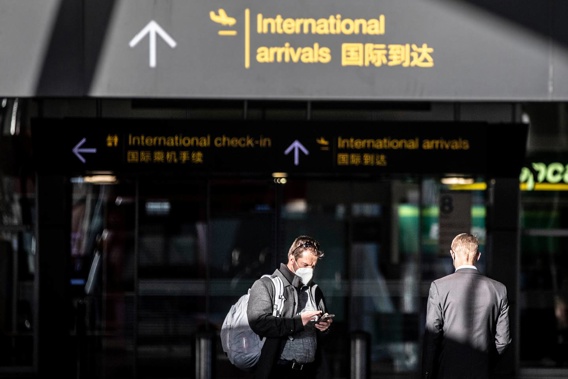
The imminent reopening of our borders could see the rate of foreign-seeded Covid cases in our communities jump four-fold – adding to the risk of another large wave later this year.
In a new analysis, a team of scientists analysed data from just over 10,400 complete genomes of the virus sequenced in New Zealand between December and mid-June.
It showed that, while there'd been a clear trend of virus variants and sub-variants succeeding another over time – as has happened with Delta, Omicron's BA.1 and BA.2 types, and now our wave-driving BA.5 - there'd also been a pattern tied to border settings.
The study, published online ahead of peer review, found a surge of the more-transmissible BA.5 and BA.2.12.1 subvariants entering our communities had come in step with a gradual return to pre-pandemic levels of international traveller arrival rates.
From March, when MIQ requirements ceased, daily arrival numbers had swelled from 500 to 5000 – a rate that now correlated to about one foreign case of Covid-19 being seeded here each day.
When international travel here completely resumed from next month – potentially bringing daily arrival volumes back to 15,000 to 30,000 travellers - the rate of seeding could grow by three to four times, the study found.
"Given the waning levels of population immunity, this rate of importation presents the risk of a large wave in New Zealand during the second half of 2022," the study authors said.
"Genomic surveillance, coupled with modelling the rate at which new variants cross the border into the community, provides a lens on the rate at which new variants might gain a foothold and trigger new waves of infection."
Since only April, there had been 19 to 24 different introductions into the country of BA.5 and 23 to 29 of BA.2.12.1 - notably higher than the 16 to 21 fresh incursions of BA.2 observed over a much longer time period.
Further, the analysis found there was typical lag of 35 days between one of these cases being seeded here, and the lineage being picked up by genomic surveillance.
/cloudfront-ap-southeast-2.images.arcpublishing.com/nzme/HVYH5FCRP2KAHFL7SSJKJXU6GU.jpg)
Study co-author and Otago University virologist Dr Jemma Geoghegan said re-opened borders would inevitably mean many more cases entering the country, and much more spread. Photo / Supplied
Study co-author and Otago University virologist Dr Jemma Geoghegan said reopened borders would inevitably mean many more cases entering the country, and much more spread.
It would also mean losing a "head start" the country had long had in preparing to receive new sub-variants that have emerged globally – the latest being second-generation Omicron subvariant BA.2.75.
"We don't know if that has the ability to overtake BA.5 as our dominant sub-variant – but it's certainly on our watch list."
The study comes after the Government moved to scrap pre-departure testing for international arrivals last month, which has since led to a near five-fold increase in Covid-19 border cases.
While travellers were still being asked to undertake rapid antigen tests on the day or day after they arrived, and again five or six days later, experts have been sceptical of the difference this would make.
University of Auckland senior lecturer and study co-author Dr David Welch said an influx of arrivals would also have implications for genomic sequencing.
"I'd expect the proportion of border samples that we're sequencing is going to be decreasing, even if the actual number of samples we are sequencing is increasing simply because there are many more border cases these days."
Compared with other countries, however, Welch said New Zealand now had a relatively good genomic surveillance programme in place.
"We've certainly got a better system now, in terms of requesting specific cases from specific areas to sample."
Take your Radio, Podcasts and Music with you









